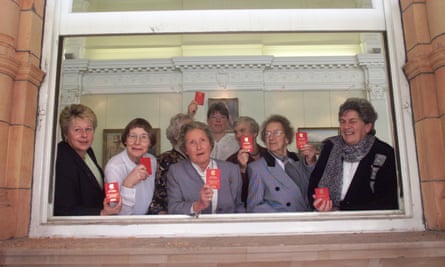
In 1998, the final year of Norma Izard’s five-year reign at the helm of the English Women’s Cricket Association (WCA), she made a decision that would change the course of sporting history. “The Australians kept saying, ‘Why don’t we get a trophy when we play England?’ But they never did anything about it,” she said an interview from 2017. “So I thought to myself, I’ll do it. I was president, so no one could stop me!”
Inspired by the men’s ash urn, she asked a friend, wood carver Brian Hodges, to sculpt a hollow cricket ball out of wood. Then, on July 20, she gathered the England and Australian women’s cricket teams at Lord’s, had them sign a miniature bat, borrowed a wok from the Marylebone Cricket Club (MCC) kitchen, burned the bat in it, and placed the ” Ashes” in the wooden ball.
It was a decidedly lackluster occasion; Still, the concept of the Women’s Ashes captured the public imagination so much that 25 years later, in the summer of 2023, record crowds flocked to watch the two teams compete for Norma’s little wooden ball.
For Norma, who has died aged 90, this would be her final act as WCA president: four months earlier she had chaired the extraordinary general meeting at which WCA members voted to merge with the England and Wales Cricket Board. It marked the end of Norma’s 50-year relationship with the association, which had begun in 1948 when she attended a schoolgirls coaching session in Kent (the first ever held in the county), included a period as a national selector and culminated was appointed England coach in 1984.
Women’s cricket in the 1980s was still a purely amateur sport and the role was unpaid, but Norma (nicknamed “Storming Norma” by the England players) slowly introduced a more professional attitude, enforcing a strict 10pm curfew and drinking one Beer per day limit on tours. In 1988 the WCA persuaded her to make the appointment Ruth Prideaux as the first permanent English coach.
It was a masterstroke: Ruth’s radical ideas on sports psychology and fitness, coupled with Norma’s quiet efficiency behind the scenes, led to England overcoming their underdog status and triumphing in the 1993 World Cup final at Lord’s. The tournament was a fitting swansong for Norma, who remains the longest-serving manager of any English cricket team, men or women.
Norma was born in Beckenham and was the only child of Olive (née Goss) and William Preston. William was a Metropolitan police officer and a keen sportsman who played football and cricket for Cornwall and the police and instilled a love of cricket in his daughter from an early age. “When I was three, I had my own racket,” recalls Norma. “And I put newspaper around my legs as cushion and played in the garden.”
Initially evacuated to Cornwall during the Second World War, Norma was delighted to visit Beckenham Grammar School for Girls in 1944 and discover that it was one of the few girls’ schools in the country to offer cricket. When Norma was selected for Kent Juniors in 1948, with clothing rationing still in effect, her mother, a seamstress, somehow sourced a yard of cream flannel to ensure her daughter wore the white cricket skirt that was a WCA requirement for all representative cricket sport.
At the age of 17, Norma was playing for the Kent senior team and had also joined the Kent Nomads WCC. She was invited to England Tests before the tour to Australia and New Zealand in 1957/58, but Prideaux relegated her to the post and took over the role of wicketkeeper.

Norma trained as a physical education teacher at Dartford College between 1951 and 1954, was captain of the cricket team and played in the first team for hockey and lacrosse. Her first teaching position was at Kidbrooke Girls’ School in Greenwich, the first purpose-built comprehensive school in London. In 1955 she married Peter Izard, an airline executive and RAF reserve officer, whom she had met at a mixed hockey game.
In 1960 she took a break from teaching and cricket to raise her two sons, Barrie and Mark. She later captained Kent’s second team and played her last game in 1983, aged 50. In 1981 she became manager of the first female junior team England side.
She was appointed OBE in 1995 for her services to women’s cricket, and in March 1999, after MCC finally voted to admit women, she was appointed OBE one of the first 10 women were accepted into the association as honorary members for life. Peter had been a member of the MCC for a long time; She claimed he never told her whether he voted for her admission or not.
In later years Norma retained a great interest in women’s cricket and became a trustee for the charity Chance to Shine. She visited Australia several times, including in 2008 to present the Women’s Ashes trophy to Charlotte Edwards. She was present at the Melbourne Cricket Ground in March 2020 when the world record for a women’s cricket match was set with 86,174 spectators.
Peter died in 2011. Norma is survived by Barrie and Mark and two granddaughters, Caitlin and Rhiannon.
